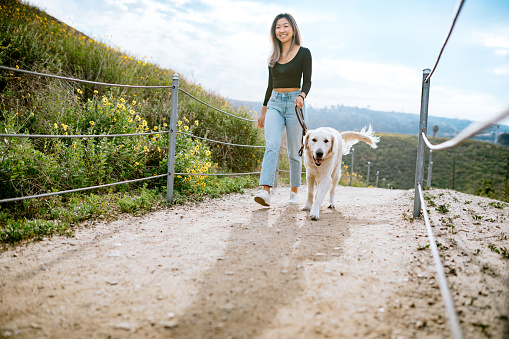
If you have come out of a codependent relationship, you probably feel overwhelmed by how untethered that separation made you feel. The reason we fall into codependent relationships is the same reason they can be hard to get over and tricky to move past: they evolved out of an unmet need for security, unconditional love, boundaries, self-care, and/or independence. This may have been modeled for you in childhood or created by unhealthy attachment styles with parents or caregivers. It may have evolved out of the other person’s demands but quickly become your benchmark for proving your love, commitment, investment, loyalty, or any other relationship parameter.
In this state of co-dependence, you may have alienated friends and/or family and felt that your partner was the only person who was really there for you or who you deserved to have around. A codependent relationship can create wounds that are invisible to others; therefore, healing from a codependent relationship is a challenging journey that needs constant maintenance along the way. You may not fully understand codependency and how much trauma it can actually bring to your life. Unlearning unhealthy behaviors and patterns is not an easy task, but it can lead you to the healthy relationship with your partner that you deserve.
What are the invisible wounds from a codependent relationship?
1) Loss of confidence and trust: In Codependent relationships, you may have experienced intense conflicts without a resolution. As a result, it can deteriorate your trust in speaking up,

especially if you have experienced gaslighting. You became more dependent on the relationship continuing than you were on yourself and didn’t feel that you could a) be on your own and/or b) be treated better.
2) Loss of insight into your needs:
A key feature of Codependency is people-pleasing and becoming overly accommodating. In a codependent relationship, what matters most is making the relationship last and not rocking the boat. Eventually, though, this peace-making mindset creates an underlying issue where you forget what your basic needs, wants, and expectations are. You forget to prioritize them and eventually aren’t even sure how to begin to identify and advocate for them.
3) Emotional distress:
Codependency can exacerbate anxiety, perfectionism, depression, body image issues, and addiction. This can put you in a state that impacts other areas of your life and stays with you even once you have left the relationship. Now, not only are you reconfiguring your life to work without this other person, but you may be making up for the fallout, both for yourself and for others around you.
3 Steps to Healing Invisible Wounds From a Codependent Relationship
1) Recognize the wounds of the toxic relationship you just got out of:

It starts with acknowledging and recognizing the impact the unhealthy relationship has on your mental wellness. At the time, you were probably in a mindset that the dynamic you were experiencing was mandatory or normative in some way. You may have told yourself that this is what love takes; sacrifice and unwavering “dedication” are all part of being in a relationship, right? If you were socialized as female, this messaging has been coming toward you for your entire life, from media to social media, to the people around you.
You may have loved this person very deeply. It might be difficult to imagine that someone you loved so much was also responsible for bringing you so much pain. It might feel as though this recognition is a betrayal of that person in some way, and you might not be ready to do that. You may also fear the experience of recognizing the ways in which someone you trusted so completely did you wrong. However, it is important to break this situation down into realistic pieces that you can cope with. If you can’t begin with the character traits, habits, behaviors, and patterns of the other person, begin with acceptance of the fact that your relationship didn’t work. If the situation was toxic, then focus on that, to begin with. Knowing that something is bad for you doesn’t immediately villainize that thing. Over time, you may come to accept that some of your partner’s behaviors weren’t great. That can happen as you process your relationship and work on identifying what about it didn’t work. There will be facets that you recognize your part in, as well. Give yourself permission to acknowledge all the ways the relationship harmed you as you are able to. This is the only way to begin to move forward; we cannot go on a journey without starting it, and starting it in this scenario means acceptance. “I was in a toxic relationship, and it caused harm. I deserve to be in a healthy relationship that feels good.”
Learning how to value yourself and giving yourself love should be your first priority. Honor your needs before making others happy to avoid people-pleasing behavior. Take the time and space required to ensure that you can focus on yourself, be curious about yourself, and prioritize yourself. You might only realize once you start spending time alone that there were many things you let slide, put away, or had to forget about. As you unearth more of yourself in this process, you will begin to see where all the hurt lies. You will discover the wounds. Some may be deeper than others; some, you might be afraid to even think about for a while. The invisible wounds that come from codependency are a silent journey in which you must prioritize your well-being over others. Nothing can remove them. No one else experienced them; no one else can heal them. Yes, you can rely on others to support you, share positive experiences, and nurture you. But your journey out of a toxic relationship is about reconnecting with yourself.
2) Repair your relationship with yourself:
Identify what you need and want from relationships. In your codependent situation, you probably spent a lot of time trying to figure out what your partner needed you to be, how your partner

wanted you to behave, etc. You might not even have realized how many changes, accommodations, and compromises you made over time. And you may not be aware now where your preferences truly lie. When you think about your future, how do you want it to look?
Regardless of your relationship status, what are some experiences you want to have, what does your ideal daily routine look like, and what are your goals? Pursuing those ideals is a part of self-care. When you take the time to know, understand, and work toward what you want, you are showing yourself that you are your number one priority. That kind of self-love is vital when you are looking to reconnect with yourself and repair wounds caused by putting your needs on the back burner.
You may need to go back in time to identify where these boundary issues began and/or where they are a pattern in your life. Are you a people-pleaser at work, as well? In your friendships and with your family? With total strangers? Where did that begin for you? You may have been raised in an unhealthy attachment; parents or caregivers may have relied upon you heavily or neglected you. You may have seen codependent relationships modeled for you. This process can feel overwhelming; we see many people uncovering the origins of their behavior patterns here at our therapy practice in Woodland Hills. Identifying where you adopted codependency and working toward undoing those behaviors will allow you to identify more strongly with your sense of self, needs, and goals. Reframing your sense of independence is key to repairing your relationship with yourself.
Treat yourself the way you want to be treated by other people. Prioritize your needs, your hobbies, your rest, and your happiness. Make your favorite meals for dinner. Join groups (online or in person) with people with similar hobbies. Try a new restaurant you heard about, even if you can’t find someone to go with you. Go see a movie you’re interested in, even if you go alone. Cultivate a life that works well for your health and happiness. Speak kindly to yourself about who you are and what you are doing. Apologize to yourself for not prioritizing your own needs during your last relationship. If and when you meet someone with whom you’d like to share your life, you will know where you have room to be flexible (because all relationships require some compromise) and what aspects of your routine are non-negotiables.
3) Get comfortable setting and maintaining boundaries:

When you are in a codependent relationship, it can become difficult to speak up for yourself. You spend so much time trying to please the other person that it feels “wrong” to consider your own wants and needs. This might be a pattern in all your interpersonal relationships. You may feel that “going along” or “holding your tongue” is doing a disservice to your relationships, but it is actually the opposite. Setting the boundaries that you need in a relationship is key to healthy communication, and maintaining those boundaries helps support your relationship in the long run.
Boundaries are non-negotiable; your needs are met by knowing, communicating, and enforcing them. Everyone has boundaries, whether they know and enforce them or not. These boundaries exist in relation to emotions, physical experiences, mental health, and behaviors. Some people have physical boundaries about how much or how little they like to be touched, where on their body they can be touched, how close people stand to them, and more. Some people have emotional boundaries about how much time they can and will spend in certain emotional climates or experiencing a specific emotional state. Some people have behavior boundaries, such as not tolerating repeated actions that upset them or knowing what the immediate “red flags” are when they see something that they don’t like.
You may consider your boundaries for the first time or revisit them after ignoring them during your relationship. This is a time to explore what makes you feel safe, secure, seen, and understood. For example, you might have boundaries about communication when you’re out with friends. Your previous partner might have “kept tabs” on you if you went out without them, texting or even calling. Going forward, you may decide to set a boundary that your phone is in your pocket if you are out with friends, and if your partner cannot respect that, then you cannot continue to see your partner. You may have been impacted by your previous partner’s sleep and work schedule, having to bend yours to work alongside theirs. Going forward, you may decide that you will not be kept up late when you work in the morning or that you won’t apologize for your work schedule.
There are so many ways our boundaries can be tested or pushed, and they’re not always apparent. Attending therapy for codependency can be a handy tool in this process of boundary exploration and setting. You can determine what your boundaries are at this time and how you will communicate them. Knowing what you will do when those boundaries aren’t respected is also good. Try as people might, we are inherently self-serving. It can be challenging to adhere to a boundary that is inconvenient or personally triggering, and people in your life will be unable to accept and consent to your boundaries flawlessly. This doesn’t necessarily mean they’re bad people or don’t care about you. It is human nature to test limits. What will help you is to be prepared for an inevitable incident where you have to stand your ground about your boundaries and advocate for yourself. This doesn’t only mean saying certain things or taking specific actions but believing that you deserve to enforce your boundaries. Learning to give yourself permission to have limits is part of the journey. It will improve your relationship with yourself and allow you to experience more genuine connections.
While you navigate your time on your own, make space for it to feel difficult. You might get frustrated by sadness, grief, and anger as you work to build your happiest life. Don’t shame yourself for wanting

what is familiar, even though you consciously know that it isn’t healthy for you. Give yourself grace and be patient with yourself. Reach out to loved ones for company and support when you need it. Cultivate something you do on your own that gives you a lot of joy. Celebrate it. Keep track of the things you could do that you couldn’t do before; consider which things you’d like to share with a partner sometimes and which things are just for you. Accept your emotions, both negative and positive, with as little judgment as you are able. Don’t get caught up in ruminating on the past or worrying about the future. Stay mindful and present, and curious; truly find and embrace yourself.
Therapy for Codependency at Embracing You Therapy
Being in a codependent relationship or coming out of one often is mentally draining. You will find yourself disconnected from yourself and need Therapy for Codependency to focus on reconnecting with yourself, understand events and people that played a role in you developing codependency and create a new and healthier foundation for future relationships. Help yourself heal from your codependent relationship!
Contact us today for your complimentary 20-minute phone consultation with our Client Care Coordinator.





